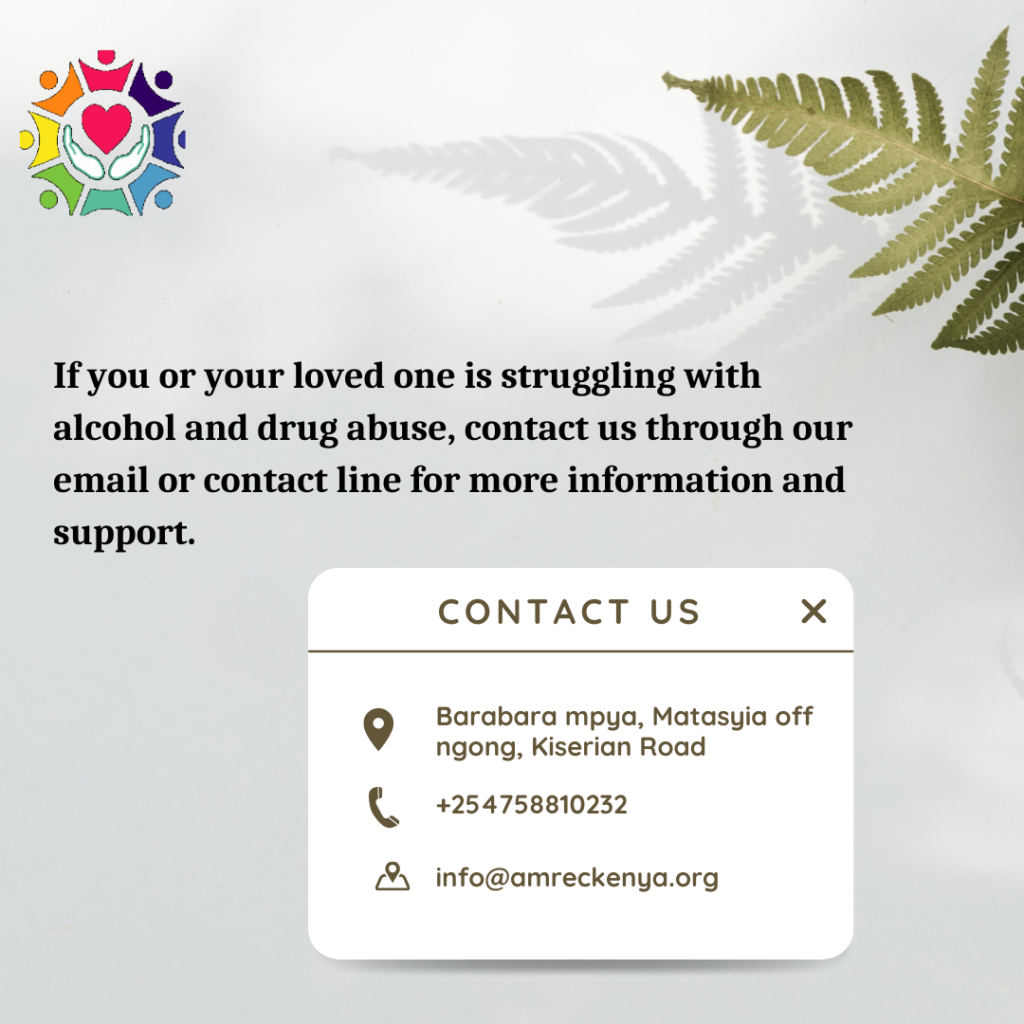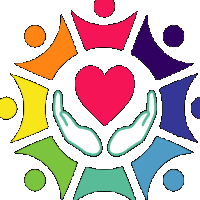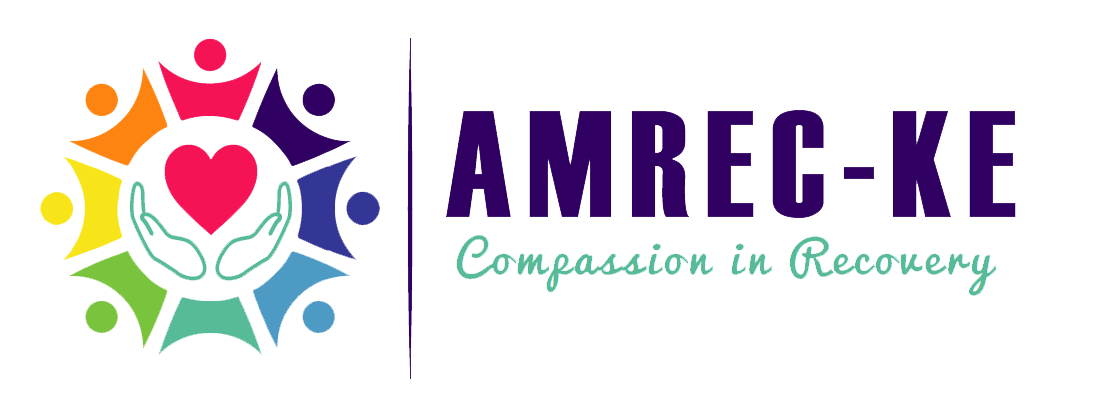
A person’s dependence and other long-term health effects can be avoided by being able to spot and recognize early signs that they are under the influence of a drug or substance. There are a lot of warning indicators that one might watch out for, some of them are physical, emotional, or even psychological.

Physical Warning Signs
There are a variety of behavioral changes associated with drug misuse that could be written off as “tics.” If you observe any of the following, it may be a symptom of a hidden illness or drug use:
1. Bloodshot eyes: Addicts to heroin frequently develop miosis, or constricted pupils, which results in bloodshot eyes.
2. Disrupted sleep patterns: Hypersomnia or insomnia are both common indicators of substance abuse (sleeping for too long).
3. Skin tone alteration: Prolonged medication use causes acne, pallor, and jaundice. Scars, bruises, scabs, and track marks could also be visible on the body.
4. Poor personal hygiene: minor neglections like as bathing, brushing teeth and physical cleanliness.

Emotional Warning Signs
When substance abuse takes control of a person’s life, their behavior will be driven by new priorities and emotions. This causes quick or noticeable alterations from what was once thought of as “normal” for this person. Daily activities and habits are altered or abandoned, and friendships and family relationships are stressed.
Some signs include:
1. Struggling to maintain limits: Addiction makes it hard to follow up on even self-prescribed rules. If you have set yourself a self-imposed use limit but cannot stop yourself, this is a concerning sign. This can manifest as urges to take a prescription drug at a higher dose than prescribed or continue after the health problem it treats has ended.
2. Loss of interest: If someone starts losing interest in things they used to take great pride in or is showing no concern towards the people or hobbies they usually cherish, chances are that they may be channeling their energy towards feeding the impulse of using drugs.
Frequent failure to show up or follow through on plans, lack of enthusiasm, or dulling of talents can all indicate an underlying struggle.
- Mood Swings: A lot of drugs and alcohol have a tendency to make it difficult for the user to control their emotions. In instances when they could previously control their feelings successfully, this can manifest as unexpected misery, intense upset, impatience, or wrath.
It could be a symptom of drug usage if a person who is ordinarily cool under pressure becomes hysterical and manic or if an optimist experiences sudden waves of sadness.
- Secretive and private behavior: The individual isolates himself or herself from friends and family and continually searches for a discreet location to use narcotics. Users frequently sense shame and fear social stigma, and some drugs can also cause paranoia. A person may become secretive and withdraw from their regular relationships as a result of this.
Reclusive behaviors that point to hiding an addiction include:
- Spending extended periods in their room
- Locking the door when they leave or enter their private space
- Not sharing details about places or people they visit when out of the house
- Shutting down when asked questions by people they usually trust
5. Defensive behavior: Withdrawn behavior and responding with hostility when uncomfortable topics arise can be a sign of defensiveness. A person trying to hide addiction may redirect the conversation with arguments or even aggressive mood swings, and distraction methods are also a defensive sign.
6. Unpredictable behavior: Depending on the drug, the high could be associated with euphoria, paranoia, feelings of power, or invulnerability. These are all sensations that can lead users to reckless or dangerous actions. Withdrawal brings with it physical and emotional distress that can also lead to erratic or even violent behavior.
7. Change in sleeping patterns: Both stimulants and depressants alter the activity of hormones responsible for tiredness and wakefulness. This will drive a user off their typical schedule. An addicted person will sometimes also experience the opposite effects when the drug leaves their system. If someone keeps “off-hours” – be that oversleeping or staying up for extended periods – relative to their usual habits, it can be a sign of growing chemical dependence.
8. Sudden change in friends, favorite hangouts, and hobbies

Psychological warning signs
1. Depression and anxiety: You may notice signs of depression and anxiety where they never existed before, including your loved one losing interest in things they used to love, sleeping too little or too much, or gaining or losing dramatic amounts of weight, to name a few.
2. Low self-esteem: Individuals with drug addictions may demonstrate a marked lack of confidence in their abilities, intelligence, looks, or other aspects of their life.
3. Poor motivation: You may notice that people demonstrating substance misuse symptoms set extravagant goals, but have no motivation to achieve them.
4. Irritability and mood swings: Another symptom of drug use can manifest as sudden agitation and unpredictable temperament and an unexplained change in personality or attitude.

Other Warning signs include:
Changes in Performance
Substance use disorders in adults can also affect job performance, which can lead to illegal behavior as they run out of funds to fuel their addiction. What are the signs of drug use regarding on-the-job behavior? Some of the job-related symptoms of drug use might include:
- Absenteeism: Upwards of 10% of drug users have missed work at some point because of a hangover.
- Poor decision-making: People addicted to drugs may have difficulty making decisions because they become preoccupied with obtaining and using substances.
- Increased conflict: Another symptom of drug addiction in adults is a higher frequency of arguments and insubordination in the workplace.
- Theft: Drug addiction may lead individuals to steal from their workplace to fund their addiction. This act can lead to other criminal behavior because it may cost them their jobs and income.
Sex and gender differences
The warning signs of substance misuse may vary between men and women. The physical, behavioral, and emotional responses can vary dramatically between the two genders. Symptoms of drug use for men might include:
- Shrinkage in the testes and fertility issues.
- Severe manifestations of certain addictions, like marijuana use disorder.
- Increased likelihood of using drugs to enhance positive moods.
On the other side of the coin, symptoms of drug use for women might include:
- Uncharacteristic body hair growth and male-pattern baldness.
- Dramatic weight loss with some specific categories of drugs.
- Higher likelihood of experiencing panic attacks with a certain substance
Getting Help

Follow our social media handles:
References
Tn government Warning Signs of Drug Abuse. (n.d.). https://www.tn.gov/behavioral-health/substance-abuse-services/treatment—recovery/treatment—recovery/prescription-for-success/warning-signs-of-drug-abuse.html
Medically Reviewed by UPMC Western Behavioural Health, August 2, 2017, “Warning signs of drug use” https://share.upmc.com/2017/08/warning-signs-of-drug-use/,UMPC Health Beat
Edited by: Marisa Crane, B.S, Oct 21, 2022,” How to know someone is on drugs“, https://americanaddictioncenters.org/adult-addiction-treatment-programs/know-is-someone-on-drugs, American Addiction center.
Written by Paula Spencer Scott & Medically Reviewed by Christopher Rodgman, MD on January 27, 2021,” Signs of drug addiction” https://www.webmd.com/mental-health/addiction/signs-of-drug-addiction, Web Md
Substance abuse. (2022, November 4). In Wikipedia. https://en.wikipedia.org/wiki/Substance_abuse
Cirque Lodge,” Signs of drug abuse“, https://www.cirquelodge.com/addiction/signs-of-drug-abuse/ Cirque Lodge
Gateway Foundation “Signs and Symptoms of drug abuse in adults” https://www.gatewayfoundation.org/about-gateway-foundation/faqs/signs-and-symptoms-of-drug-abuse-in-adults/ Gateway Foundation
By Lemu Wanjiku
Counselling Psychologist
AMREC, Kenya.

